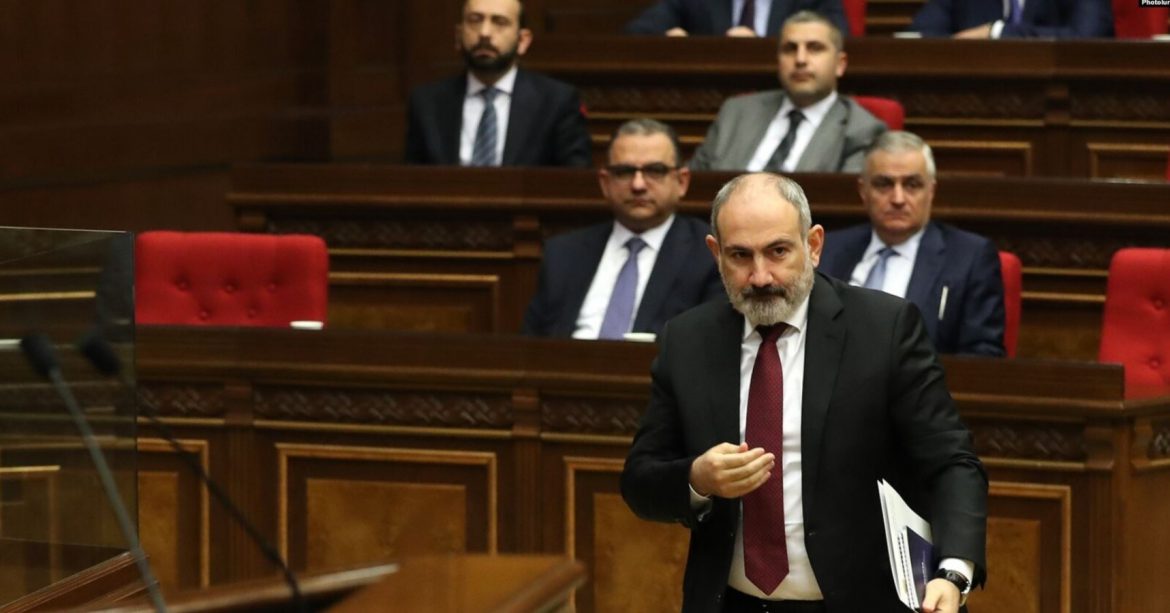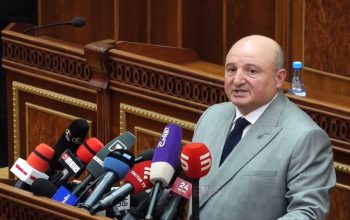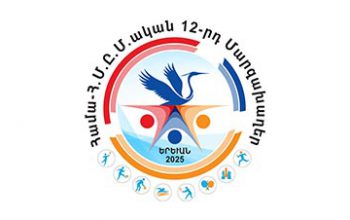Armenia unequivocally recognizes Azerbaijan’s territorial integrity and is ready to sign a relevant peace treaty with Baku, Prime Minister Nikol Pashinyan said on Tuesday.
“The peace treaty between Armenia and Azerbaijan will become realistic if the two countries recognize clearly, without ambiguities and pitfalls, each other’s territorial integrity and undertake not to ever submit territorial claims to each other,” Pashinyan told the Armenian parliament.
“I now want to reaffirm that Armenia fully recognizes the territorial integrity of Azerbaijan and we expect Azerbaijan to do the same by recognizing the entire territory of the Armenian [Soviet Socialist Republic] as the [modern-day] Republic of Armenia,” he said.
Pashinyan already vowed such recognition in a joint statement with Azerbaijani President Ilham Aliyev, French President Emmanuel Macron and European Union chief Charles Michel issued after their meeting held in Prague last October. The statement upheld a 1991 declaration in which Armenia and other newly independent Soviet republics recognized each other’s Soviet-era borders.
This was due to be at the heart of an Armenian-Azerbaijani peace treaty promoted by the West. Pashinyan publicly backed such a deal ahead of the Prague summit, stoking Armenian opposition claims that he is ready to help Baku regain full control over Artsakh (Nagorno-Karabakh).
Russian Foreign Minister Sergei Lavrov likewise said in December that Pashinyan effectively recognized Azerbaijani sovereignty over Karabakh at Prague. Lavrov said the Armenian leader thus all but precluded a different peace deal favored by Moscow. It would indefinitely delay an agreement on Karabakh’s status.
An Armenian opposition lawmaker, Artur Khachatrian (Armenian Revolutionary Federation), challenged Pashinyan on Tuesday to clarify his position on Karabakh’s future status. The prime minister gave no clear answer, saying only that there needs to be an “international mechanism” for direct talks between Baku and Karabakh’s leadership.
In April 2022, Pashinyan sparked angry opposition protests in Yerevan when he signaled readiness to “lower the bar” on Karabakh’s status acceptable to Armenia. He and other Armenian officials also stopped making references to the Karabakh Armenians’ right to self-determination in their public statements.
Pashinyan’s Civil Contract party pledged to continue championing the principle of self-determination in its 2021 election manifesto.
Artsvik Minasian (Armenian Revolutionary Federation), another opposition lawmaker, accused the Armenian government of not honoring that pledge and thus calling its legitimacy into question.
Meanwhile, Aliyev said that Armenia’s leadership now “agrees in principle” with his position on the Armenian-Azerbaijani peace treaty. Still, he said, Pashinyan should go farther and declare that “Karabakh is Azerbaijan.”
In an interview with Azerbaijani state television aired on Tuesday, Aliyev also renewed his threats of fresh military action against Armenia, saying that Azerbaijan is strengthening its army because it “must be ready for any situation.”
Aliyev went on to again rule out any internationally mediated talks with Karabakh representatives. Karabakh Armenians should accept Azerbaijani citizenship or leave the territory, he said.
“The separatists have to realize that they have two options: either they will live under Azerbaijani rule or leave,” added Aliyev.




